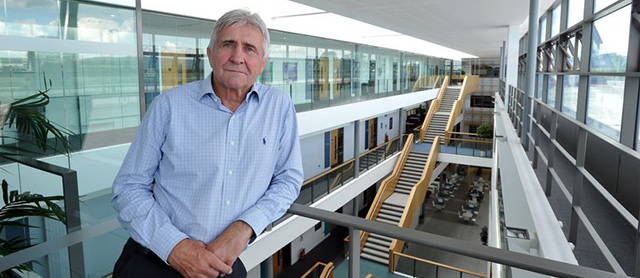By Professor Brian Morgan
The recent Report on Managing Productivity in Wales produced by the Hodge Project Research Team at Cardiff Metropolitan University, gathered new evidence on how firm’s management practices affect productivity in the context of the low productivity economy of Wales. Professor Brian Morgan gives us an insight into the findings of the report and in particular the significance of theses findings to the SME sector in Wales.
Our recent report found that factors like increased investment in work-based skills and in employee engagement were important in increasing the overall performance of the firm.
It indicated that the channels for improving productivity are at their most effective when employees are more engaged in their jobs, have more supportive line management, more meaningful appraisals, and when their views are listened to.
However, firms cannot expect their employees to become more engaged if their managers are not. This is often a key issue for SMEs.
The problem is that, whereas large firms often operate with HR departments that manage training needs and staff appraisals, small firms often lack the resources to undertake these tasks.
Consequently, enhanced business support for improving management and leadership in small firms, should, in addition to developing the harder skills like financial performance, have a focus on the softer skills needed for employee engagement.
The aim should be to maximise the internal capacity of the firm to overcome the main barriers to growth – and failure to motivate staff is a key barrier.
Admiral Leadership Programme
In terms of engaging and developing staff we have been very fortunate at Cardiff Met in attracting employees from successful businesses like Admiral Plc onto our 20Twenty Leadership programme.
Admiral was recently named the UK’s Best Big Company to Work For and it is the 19th year that they have been recognised as one of the UK’s best employers by the Sunday Times.
Having Admiral as an exemplar has been useful for us because an important mantra of the 20Twenty programme is that “firms learn best from other firms” – especially via peer to peer learning and feedback in interactive workshops.
So, for the SMEs on the 20Twenty, the opportunity to participate in action-learning events alongside one of the top companies in the UK has been hugely beneficial.
Admiral’s commercial success is evidence of the important role played by both hard and soft skills in improving performance and achieving profitable growth in a very competitive sector.
Improving Productivity in SMEs
On the 20Twenty programme, we have been able to use this experience to emphasise the extent to which these skills need to play complementary roles within SMEs seeking to improve their productivity.
A key undervalued benefit for firms on the 20Twenty has been reduced labour turnover.
As Doug Conant, CEO of Campbell Soups, said: “to win in the market place you must first win in the workplace. I am obsessed with keeping employee engagement front and centre”
Unfortunately, we have discovered that the training needed within the SME sector is unlikely to be achieved without external intervention.
Hence, we are particularly grateful for the support we have received from the European Social Fund over the last ten years, This has allowed us to deliver a first class leadership development programme to SME managers at a fraction of the cost they would have had to outlay if we had been forced to charge the market price.
See also:
Clifton, N., Huggins, R., Morgan, B. and Thompson, P., (2015) “An appropriate tool for entrepreneurial learning in SMEs? The case of the 20Twenty Leadership Programme.” Local Economy, 30(5)



